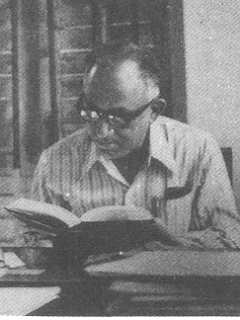 W
WDebabrata Basu was an Indian statistician who made fundamental contributions to the foundations of statistics. Basu invented simple examples that displayed some difficulties of likelihood-based statistics and frequentist statistics; Basu's paradoxes were especially important in the development of survey sampling. In statistical theory, Basu's theorem established the independence of a complete sufficient statistic and an ancillary statistic.
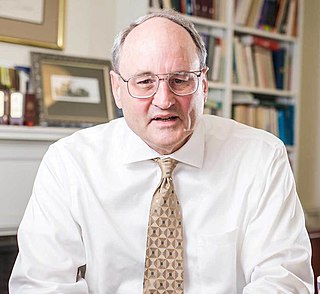 W
WHenry E. Brady is an American political scientist specializing in methodology and its application in a diverse array of political fields. He is Dean of the Goldman School of Public Policy at University of California, Berkeley and holds the Class of 1941 Monroe Deutsch Professor of Political Science and Public Policy. He was elected President of the American Political Science Association, 2009–2010, giving a presidential address entitled "The Art of Political Science: Spatial Diagrams as Iconic and Revelatory." He has published academic works on diverse topics, co-authoring with colleagues at a variety of institutions and ranks, as well as many solo authored works. His principal areas of research are on political behavior in the United States, Canada, and the former Soviet Union, public policy and methodological work on scaling and dimensional analysis. When he became President of the American Political Science Association, a number of his colleagues and co-authors contributed to his presidential biography entitled "Henry Brady, Big Scientist," discussing his work and the fields to which he has contributed and has also shaped.
 W
WWilliam Edwards Deming was an American engineer, statistician, professor, author, lecturer, and management consultant. Educated initially as an electrical engineer and later specializing in mathematical physics, he helped develop the sampling techniques still used by the U.S. Department of the Census and the Bureau of Labor Statistics.
 W
WDavid Amiel Freedman was Professor of Statistics at the University of California, Berkeley. He was a distinguished mathematical statistician whose wide-ranging research included the analysis of martingale inequalities, Markov processes, de Finetti's theorem, consistency of Bayes estimators, sampling, the bootstrap, and procedures for testing and evaluating models. He published extensively on methods for causal inference and the behavior of standard statistical models under non-standard conditions – for example, how regression models behave when fitted to data from randomized experiments. Freedman also wrote widely on the application—and misapplication—of statistics in the social sciences, including epidemiology, public policy, and law.
 W
WRobert Martin Groves is an American sociologist and expert in survey methodology who has served as the Provost of Georgetown University in Washington, D.C. since August 2012. He also served as the Director of the United States Census Bureau from 2009 to 2012.
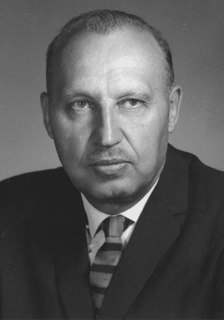 W
WLeslie Kish was a Hungarian-American statistician and survey methodologist.
 W
WGunnar Kulldorff was a Swedish statistician, specializing in estimation theory, survey sampling and order statistics. From 1989 to 1991, he was the president of the International Statistical Institute.
 W
WElizabeth F. Loftus is an American cognitive psychologist and expert on human memory. She has conducted research on the malleability of human memory. Loftus is best known for her work on the misinformation effect and eyewitness memory, and the creation and nature of false memories, including recovered memories of childhood sexual abuse. As well as her work inside the laboratory, Loftus has been involved in applying her research to legal settings; she has consulted or provided expert witness testimony for hundreds of cases. In 2002, Loftus was ranked 58th in the Review of General Psychology's list of the 100 most influential psychological researchers of the 20th century, and was the highest ranked woman on the list.
 W
WJerzy Neyman was a Polish mathematician and statistician who spent the first part of his professional career at various institutions in Warsaw, Poland and then at University College London, and the second part at the University of California, Berkeley. Neyman first introduced the modern concept of a confidence interval into statistical hypothesis testing and co-revised Ronald Fisher's null hypothesis testing.
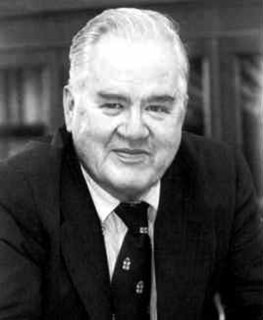 W
WJohn Wilder Tukey was an American mathematician and statistician, best known for the development of the Fast Fourier Transform (FFT) algorithm and box plot. The Tukey range test, the Tukey lambda distribution, the Tukey test of additivity, and the Teichmüller–Tukey lemma all bear his name. He is also credited with coining the term 'bit' and the first published use of the word software.
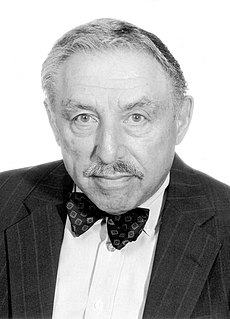 W
WArthur Henry White was an American businessman and humanitarian. He was a co-founder and vice chairman of Yankelovich Partners, Inc., a research and consulting firm; a co-founder of Reading Is Fundamental, the largest non-profit children's literacy organization in the world; and a founder of for the Future, a non-profit organization which analyzes, develops, and provides job training and education.